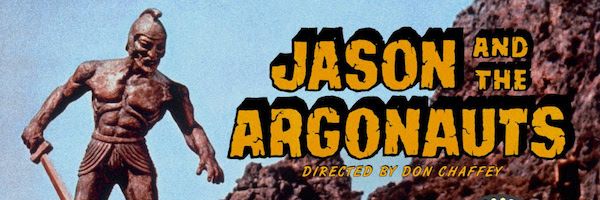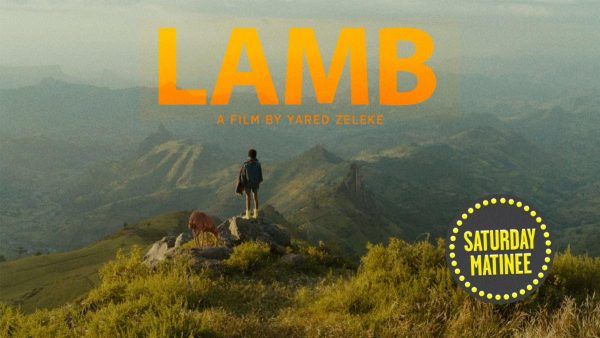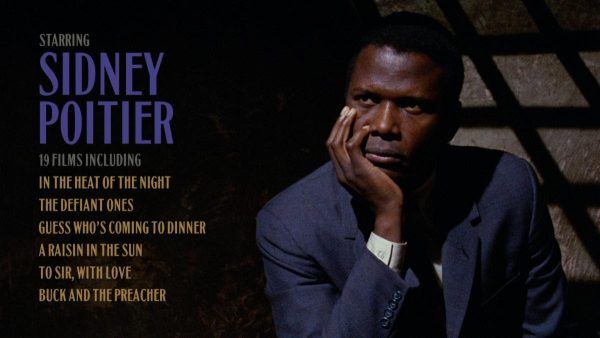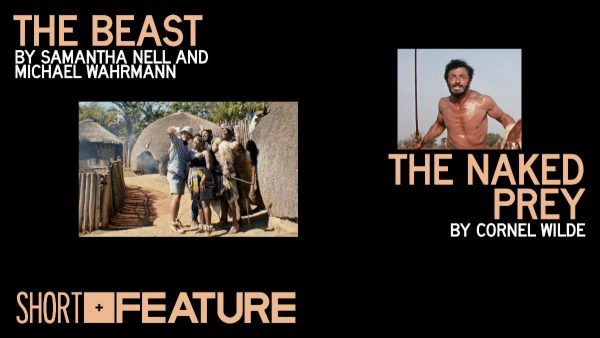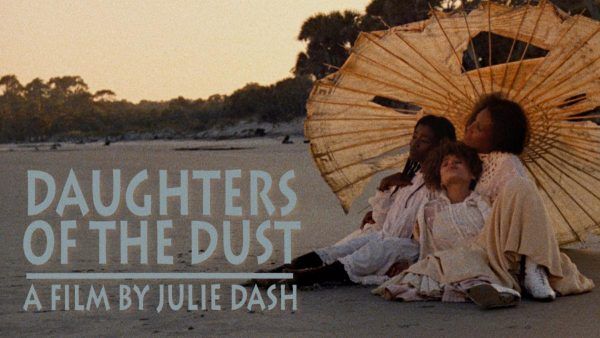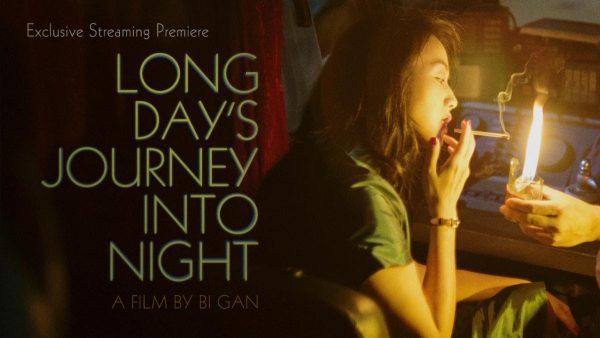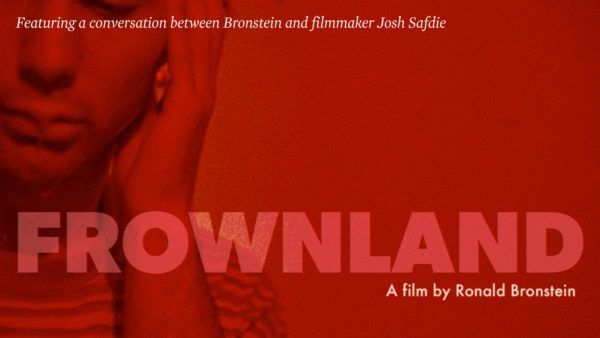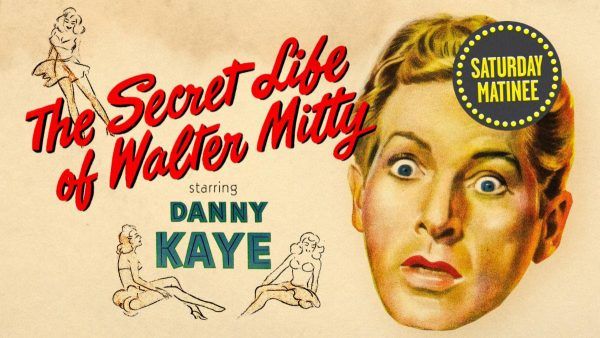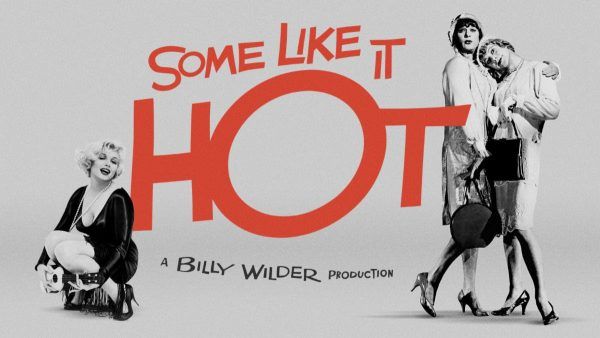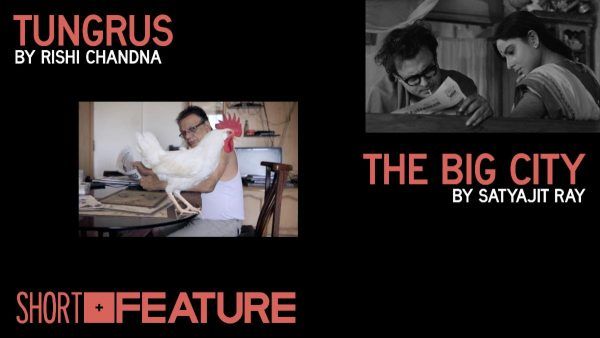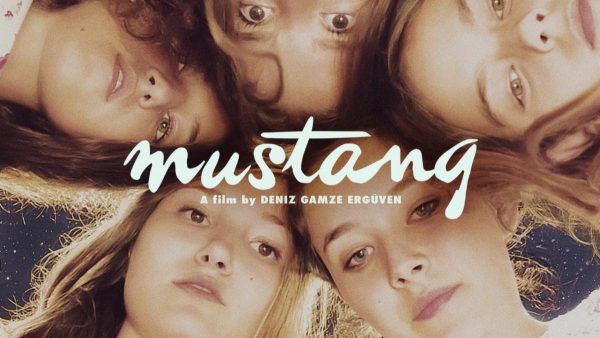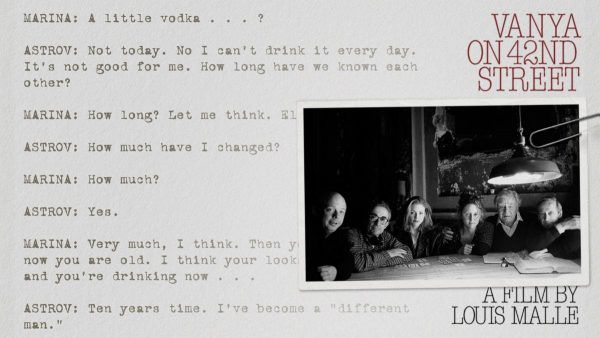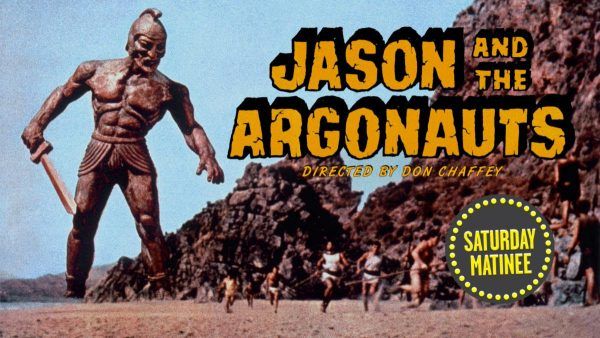Looking to expand your cinematic knowledge or dive into a treasure trove of classic cinema that is impossible to find anywhere else? Then you should check out the Criterion Channel.
The streaming service's February features Include a celebration of Sidney Poitier, the late Anna Karina, Pioneers of African American Cinema, Bi Gan's Long Day's Journey into Night, Jason and the Argonauts, and more!
Saturday, February 1
Saturday Matinee: Lamb
Yared Zeleke’s delicately touching feature debut tells the story of young Ephraïm (Rediat Amare), a half-Jewish Ethiopian boy who, following his mother’s death, is sent by his father to live among distant relatives, bringing with him his beloved pet sheep. When his uncle decides that his companion must be sacrificed for the next religious feast, Ephraim embarks on a daring quest to save the animal. Beautifully shot against the majestic backdrop of Ethiopia’s southern mountains, Lamb is an affecting, refreshingly naturalistic coming-of-age fable about what people will risk in order to take charge of their own destinies.
Sunday, February 2
Starring Sidney Poitier
Featuring a new interview with film scholar Mia Mask
Both one of the greatest actors of the twentieth century and a transformative cultural icon, Sidney Poitier forever changed the way African Americans were represented on screen. Defying decades of racist stereotyping within mainstream Hollywood cinema, Poitier brought dignity and humanity to his powerful performances in zeitgeist-defining classics like In The Heat of the Night, A Raisin in the Sun, Guess Who’s Coming to Dinner, and The Defiant Ones, essential documents of a changing America in the midst of the civil rights movement. The first black performer to win the Academy Award for best actor and one of the first black directors to work in the Hollywood studio system, Poitier paved the way for a new generation of African American stars and filmmakers with his unwavering integrity.
- Cry, the Beloved Country, Zoltán Korda, 1951
- Good-bye, My Lady, William A. Wellman, 1956
- Edge of the City, Martin Ritt, 1957*
- The Defiant Ones, Stanley Kramer, 1958
- A Raisin in the Sun, Daniel Petrie, 1961
- Paris Blues, Martin Ritt, 1961
- Pressure Point, Hubert Cornfield, 1962
- Lilies of the Field, Ralph Nelson, 1963
- The Slender Thread, Sydney Pollack, 1965
- A Patch of Blue, Guy Green, 1965*
- Duel at Diablo, Ralph Nelson, 1966
- In the Heat of the Night, Norman Jewison, 1967
- Guess Who’s Coming to Dinner, Stanley Kramer, 1967
- To Sir, with Love, James Clavell, 1967
- They Call Me Mister Tibbs!, Gordon Douglas, 1970
- Brother John, James Goldstone, 1971
- Buck and the Preacher, Sidney Poitier, 1972
- A Warm December, Sidney Poitier, 1973
- Uptown Saturday Night, Sidney Poitier, 1974
*Available March 1
Monday, February 3
Foreign-Language Oscar Winners
As you put the finishing touches on your Oscar-pool ballots in preparation for this Sunday’s viewing parties, reacquaint yourself with these past winners of the Academy Award for best foreign-language film. A cross section of the last seven decades of international cinema, the lineup includes masterpieces by titans like Akira Kurosawa, Federico Fellini, Ingmar Bergman, and Luis Buñuel; hot-button political thrillers ripped from the headlines in Greece and Argentina; high-water marks of the Czechoslovak New Wave; a Soviet epic of unparalleled scale; and, of course, a handful of left-field surprises (it is the Academy Awards, after all). Whoever takes home Oscar gold this weekend, they’ll be in good company alongside these formidable titles.
- Rashomon, Akira Kurosawa, 1950
- Gate of Hell, Teinosuke Kinugasa, 1953
- La strada, Federico Fellini, 1954
- Nights of Cabiria, Federico Fellini, 1957
- Mon oncle, Jacques Tati, 1958
- Black Orpheus, Marcel Camus, 1959
- The Virgin Spring, Ingmar Bergman, 1960
- Through a Glass Darkly, Ingmar Bergman, 1961
- 8½, Federico Fellini, 1963
- The Shop on Main Street, Ján Kadár and Elmar Klos, 1965
- Closely Watched Trains, Jiří Menzel, 1966
- War and Peace, Sergei Bondarchuk, 1966–67
- Z, Costa-Gavras, 1969
- The Discreet Charm of the Bourgeoisie, Luis Buñuel, 1972
- Amarcord, Federico Fellini, 1973
- Day for Night, François Truffaut, 1973
- Dersu Uzala, Akira Kurosawa, 1975
- The Tin Drum, Volker Schlöndorff, 1979
- Fanny and Alexander, Ingmar Bergman, 1982
- The Official Story, Luis Puenzo, 1985
- Babette’s Feast, Gabriel Axel, 1987
- The Great Beauty, Paolo Sorrentino, 2013
Tuesday, February 4
Short + Feature: Tourist Traps - The Beast and The Naked Prey
The tables turn on white tourists in South Africa in these subversive anticolonialist parables that question the meaning of “civilization.” In Samantha Nell and Michael Wahrmann’s satirical short The Beast, a frustrated performer in a Zulu cultural village launches a one-man rebellion of Shakespearean proportions. It makes for a thought-provoking companion to actor-director Cornel Wilde’s lean, mean survival thriller The Naked Prey, in which white hunters become the hunted in colonial South Africa.
Wednesday, February 5
Daughters of the Dust
Julie Dash’s rapturous vision of black womanhood and vanishing ways of life in the turn-of-the-century South was the first film directed by an African American woman to receive a wide release. In 1902, a multigenerational family in the Gullah community on the Sea Islands off of South Carolina—former West African slaves who carried on many of their ancestors’ Yoruba traditions—struggle to maintain their cultural heritage and folklore while contemplating a migration to the mainland, even further from their roots. Awash in gorgeously poetic, sun-dappled images at once dreamlike and precise, Daughters of the Dust forges a radical new visual language rooted in black femininity and the rituals of Gullah culture.
Thursday, February 6
Long Day’s Journey into Night
Exclusive streaming premiere
Bi Gan’s dazzling sophomore feature is a hallucinatory, noir-tinged stunner about a lost soul (Huang Jue) on a quest to find a missing woman from his past (Tang Wei). Following leads across Guizhou province, he crosses paths with a series of colorful characters, among them a prickly hairdresser played by Taiwanese superstar Sylvia Chang. When the search leads him to a dingy movie theater, the film launches him—and us—into an epic, gravity-defying sequence, an immersive, hour-long odyssey through a labyrinthine dreamscape that ranks as one of the true marvels of modern cinema. China’s biggest art-house hit of all time, Long Day’s Journey into Night confirms Bi as one the most daring and exciting auteurs working today.
Friday, February 7
Double Feature: Con Me If You Can - The Grifters and House of Games
Good luck keeping up with who’s scamming who in these fiendishly seductive looks at the art and psychology of the con. Fraudsters keep it in the family in Stephen Frears’s coolly stylish neonoir The Grifters, featuring a bravura performance from Anjelica Huston as a master con artist not above double-crossing her own son. Then, David Mamet further explores the complex dynamic between scammer and victim in his ingeniously tricksy directorial debut, House of Games, in which a psychiatrist allows herself to be drawn into a seedy confidence man’s web of deceit.
Friday, February 7
Frownland
Featuring a conversation between director Ronald Bronstein and filmmaker Josh Safdie
Longtime Safdie brothers collaborator Ronald Bronstein has described his lone directorial effort as “a rotten egg lobbed with bad aim at the silver screen.” Be forewarned: audience response has been intensely divided. Frownland has garnered both passionate raves and scathing denunciations, while festival screenings have ended in screaming matches between patrons. It's strong stuff, yes, but none of its notorious reputation does justice to its savage dark humor, emotional heft, and stylistic audacity. Above all else, Frownland is a pitch-black character study of Keith Sontag (Dore Mann), a neurotic, manipulative, stridently unlovable New Yorker whose pitiless roommate aptly describes him, to his face, as “a burbling troll in his underwear.” With the most basic elements of human communication a struggle, Keith lurches his way through an uncaring city, attempting to aid a suicidal friend, evict his unctuous roommate, and simply attain some measure of self-respect.
Saturday, February 8
Saturday Matinee: The Secret Life of Walter Mitty
This wacky comedy-adventure is probably the ultimate fantasy movie. The irrepressible Danny Kaye stars as Walter Mitty, a mild-mannered proofreader who spends his time daydreaming himself into the shoes of daredevil heroes: an RAF pilot, a seafaring swashbuckler, a riverboat gambler. Then Walter meets a ravishing blonde who draws him into a real-life adventure involving a band of cutthroats and a cache of stolen jewels. Adapted from James Thurber’s beloved short story, The Secret Life of Walter Mitty is a winning showcase for Kaye’s comic talents.
Sunday, February 9
Film Plays Itself
Write what you know, the old adage goes, and why shouldn’t the same hold true for filmmakers? With Herculean artistic struggle, larger-than-life egos, and movie-star glamor all part of the mix, the process of making a film can be as rife with drama as anything on screen—at least if we’re to believe these self-reflexive looks at the wild, weird, and wonderful world of the movie industry. From catty Hollywood-on-Hollywood exposés like Sunset Boulevard and The Bad and the Beautiful to Euro-chic art-house classics like 8½ and Contempt to unclassifiable metacinematic experiments like David Holzman’s Diary and Symbiopsychotaxiplasm Take One, these films offer tantalizing glimpses into the behind-the-scenes highs and lows of moviemaking from those who know best.
- Footlight Parade, Lloyd Bacon, 1933
- Sunset Boulevard, Billy Wilder, 1950
- The Bad and the Beautiful, Vincente Minnelli, 1952
- The Big Knife, Robert Aldrich, 1955
- Two Weeks in Another Town, Vincente Minnelli, 1962
- 8½, Federico Fellini, 1963
- Contempt, Jean-Luc Godard, 1963
- La ricotta, Pier Paolo Pasolini, 1963
- David Holzman’s Diary, Jim McBride, 1967
- Symbiopsychotaxiplasm Take One, William Greaves, 1968
- Lions Love (. . . and Lies), Agnès Varda, 1969
- Day for Night, François Truffaut, 1973
- The Day of the Locust, John Schlesinger, 1975
- Hollywood Shuffle, Robert Townsend, 1987
- Close-up, Abbas Kiarostami, 1990
- The Player, Robert Altman, 1992
- Adaptation, Spike Jonze, 2002
Monday, February 10
Some Like It Hot: Criterion Collection Edition #950
One of the most beloved films of all time, this sizzling masterpiece by Billy Wilder set a new standard for Hollywood comedy. After witnessing a mob hit, Chicago musicians Joe and Jerry (Tony Curtis and Jack Lemmon, in landmark performances) skip town by donning drag and joining an all-female band en route to Miami. The charm of the group’s singer, Sugar Kane (Marilyn Monroe, at the height of her bombshell powers) leads them ever further into extravagant lies, as Joe assumes the persona of a millionaire to woo her and Jerry’s female alter ego winds up engaged to a tycoon. With a whip-smart script by Wilder and I. A. L. Diamond, and sparking chemistry among its finely tuned cast, Some Like It Hot is as deliriously funny and fresh today as it was when it first knocked audiences out six decades ago.
SUPPLEMENTAL FEATURES: Behind-the-scenes documentaries; interviews with Billy Wilder, Marilyn Monroe, Tony Curtis, and Jack Lemmon; and more.
Tuesday, February 11
Short + Feature: India Up Close - Tungrus and The Big City
From Mumbai to Kolkata, filmmakers capture the rich social fabric of life in India’s bustling cities. In the hilariously deadpan short documentary Tungrus, an ornery pet rooster terrorizes a family in a cramped Mumbai apartment. It’s followed by Satyajit Ray’s masterful drama The Big City, which explores changing gender roles in 1950s India via the story of a Kolkata housewife entering the workforce. Keenly attuned to the sights, sounds, and everyday details of urban life, these films offer humorous and deeply humane insights into the inner workings of Indian family and society.
Wednesday, February 12
Mustang
Featuring a documentary on the making of the film
Deniz Gamze Ergüven’s stunning debut feature is an exhilarating immersion into the world of a spirited Turkish girl and her four teenage sisters, who are placed under virtual lockdown and threatened with the prospect of arranged marriages after they are accused of indecency by their conservative family. Rebelling against their oppressive home life, the girls find strength in one another as they begin to plot their escape. Unfolding with raw, heart-pounding immediacy, Mustang is both a stinging indictment of patriarchal misogyny and a joyous celebration of sisterly bonds.
Thursday, February 13
Vanya on 42nd Street: Criterion Collection Edition #599
In the early nineties, theater director André Gregory mounted a series of spare, private performances of Anton Chekhov’s Uncle Vanya in a crumbling Manhattan playhouse. This experiment in pure theater—featuring a remarkable cast of actors, including Wallace Shawn, Julianne Moore, Brooke Smith, and George Gaynes—would have been lost to time had it not been captured on film, with subtle cinematic brilliance, by Louis Malle. Vanya on 42nd Street is as memorable and emotional a screen version of Chekhov’s masterpiece as one could ever hope to see. This film, which turned out to be Malle’s last, is a tribute to the playwright’s devastating work as well as to the creative process itself.
SUPPLEMENTAL FEATURES: A documentary featuring interviews with André Gregory, Julianne Moore, Wallace Shawn, and others.
Friday, February 14
Double Feature: Blue Valentines - Brief Encounter and In the Mood for Love
The bittersweet pangs of impossible love—conveyed in a fleeting gesture or glance that says more than words ever could—are given swooning expression in this double bill of yearning romantic masterpieces. Set to the immortal strains of Rachmaninoff, David Lean’s Brief Encounter aches with unspoken longing as Celia Johnson’s prim and proper housewife and Trevor Howard’s married doctor are drawn to the edge of an illicit affair amid the suburban railway stations and tearooms of postwar Britain. Halfway across the world, in a lushly stylized evocation of 1960s Hong Kong, Wong Kar-wai maps the heart-racing, will-they-won’t-they tension that simmers between Tony Leung and Maggie Cheung as neighbors who discover that their own spouses are having an affair in the intoxicating In the Mood for Love.
Saturday, February 15
Saturday Matinee: Jason and the Argonauts
With an archival laserdisc commentary featuring special-effects artist Ray Harryhausen and film historian Bruce Eder
The Greek legend of Jason and the Argonauts blazes to vivid, enthralling life thanks to the brilliantly imaginative animation of stop-motion master Ray Harryhausen. He contributed many of his finest creations—including a gaggle of sword-swinging skeletons, a seven-headed hydra, and the hulking bronze giant Talos—to this rollicking swashbuckler, in which the eponymous hero sets out on an epic adventure in search of the fabled Golden Fleece. The glorious Eastmancolor visuals and rousing Bernard Herrmann score further enhance this irresistibly entertaining peak of fantasy cinema.
Sunday, February 16
Pioneers of African American Cinema
Featuring interviews with film scholars Charles Musser and Jacqueline Najuma Stewart
Among the most fascinating chapters of cinematic history is that of the so-called “race films” that flourished in the U.S. between 1920s and the ’40s. Unlike the “black cast” films produced within the Hollywood studio system, these films not only starred African Americans but were funded, written, produced, edited, distributed, and often exhibited by people of color. Entrepreneurial filmmakers built an industry apart from the Hollywood establishment, cultivating visual and narrative styles that were uniquely their own. Among the trailblazing artists whose work is featured here are Oscar Micheaux, the first major African American feature filmmaker, whose body of work includes Body and Soul, starring Paul Robeson in his film debut, and Within Our Gates; Spencer Williams, whose masterpiece The Blood of Jesus is among the most celebrated race films of the era; Zora Neale Hurston, the renowned writer who was also a pioneering ethnographic filmmaker; and James and Eloyce Gist, DIY evangelist filmmakers whose fascinating morality tales were exhibited in black churches. This landmark collection, curated by scholars Charles Musser and Jacqueline Najuma Stewart for Kino Lorber, collects an astonishing range of features, shorts, and fragments. Taken together, these vital, long-neglected works represent a rich alternative history of American cinema forged by innovative artists who defied systemic oppression to tell their own stories on screen.
- Two Knights of Vaudeville, director unknown, 1915
- Mercy, the Mummy Mumbled, R. G. Phillips, 1918
- A Reckless Rover, C. N. David, 1918
- Within Our Gates, Oscar Micheaux, 1920
- The Symbol of the Unconquered: A Story of the KKK, Oscar Micheaux, 1920
- By Right of Birth, Harry A. Gant, 1921
- Regeneration, Richard E. Norman, 1923
- Body and Soul, Oscar Micheaux, 1925
- The Flying Ace, Richard E. Norman, 1926
- Ten Nights in a Bar Room, Roy Calnek, 1926
- Rev. S. S. Jones Home Movies, Reverend Solomon Sir Jones, 1924–1928
- Eleven P.M., Richard Maurice, 1928
- Zora Neale Hurston Fieldwork Footage, Zora Neale Hurston, 1928
- The Scar of Shame, Frank Perugini, 1929
- Hell-Bound Train, James Gist and Eloyce Gist, 1930
- The Darktown Revue, Oscar Micheaux, 1931
- The Exile, Oscar Micheaux, 1931
- Hot Biskits, Spencer Williams, 1931
- The Girl from Chicago, Oscar Micheaux, 1932
- Ten Minutes to Live, Oscar Micheaux, 1932
- Veiled Aristocrats, Oscar Micheaux, 1932
- Verdict: Not Guilty, James Gist and Eloyce Gist, 1933
- Heaven-Bound Travelers, James Gist and Eloyce Gist, 1935
- Birthright, Oscar Micheaux, 1938
- The Bronze Buckaroo, Richard C. Kahn, 1939
- Commandment Keeper Church, Beaufort South Carolina, May 1940, Zora Neale Hurston, 1940
- The Blood of Jesus, Spencer Williams, 1941
- Dirty Gertie from Harlem U.S.A., Spencer Williams, 1946
Monday, February 17
Art-House America: Jacob Burns Film Center
Located just north of Manhattan in Pleasantville, New York, the Jacob Burns Film Center has been bringing vital independent, documentary, and world cinema to Hudson Valley audiences for nearly two decades. Central to the revitalization of downtown Pleasantville, the Film Center has become an integral part of the community through its Media Arts Lab, which trains students in the art of visual literacy, and through the over 150 special events it hosts annually with visiting artists. The theater’s independent spirit—nourished by supporters like Jonathan Demme, who called it “a force for social change disguised as a movie theater”—is reflected in this documentary profile, the latest entry in our Adventures in Moviegoing series. It’s accompanied by an eclectic lineup of specially selected films, which includes a landmark concert documentary, a pair of German New Wave masterpieces, and twenty-first-century art-house gems from Argentina and Romania.
- The Great Dictator, Charles Chaplin, 1940
- Brief Encounter, David Lean, 1945
- Daybreak Express, D. A. Pennebaker, 1953

